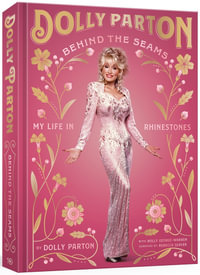With its rich but underappreciated musical heritage, Washington, D.C. is often overlooked as a cradle for punk, the birthplace of go go, and as the urban center for bluegrass in the Untied States. Capital Bluegrass: Hillbilly Music Meets Washington, D.C. richly documents the history and development of bluegrass in and around the nation's capital since it emerged in the 1950s.
In his seventeenth book, American vernacular music scholar Kip Lornell discusses both well-known progressive bluegrass bands including the Country Gentlemen and the Seldom Scene, and lesser known groups like the Happy Melody Boys, Benny and Vallie Cain and the Country Clan, and Foggy Bottom. Lornell focuses on colorful figures such as the brilliant and eccentric mandolin player, Buzz Busby, and Connie B. Gay, who helped found the Country Music Association in Nashville. Moving beyond the musicians to the institutions that were central to the development of the genre, Lornell brings the reader into the nationally recognized Birchmere Music Hall, and tunes in to NPR powerhouse WAMU-FM, which for five decades broadcast as much as 40 hours a week of bluegrass programming.
Dozens of images illuminate the story of bluegrass in the D.C. area, photographs and flyers that will be new to even the most veteran bluegrass enthusiast. Bringing to life a music and musical community integral to the history of the city itself, Capital Bluegrass tells an essential tale of bluegrass in the United States.
Industry Reviews
"Kip Lornell has written an outstanding book documenting the history of bluegrass music in the Washington, D.C., area...Capital Bluegrass focuses on bluegrass in a specific area, but the book's implications are wide ranging. Throughout, Kip Lornell provides information regarding the evolving relationships between the DMV bluegrass community and the general American culture, and also between the DMV bluegrass community and surroundings and country and
folk music industries. Capital Bluegrass: Hillbilly Meets Washington, DC will appeal to scholars of bluegrass music as well as to bluegrass fans in search of a good read about an important location for the
music." -- Philip Nusbaum, Journal of Folklore Research
"That bluegrass music not only flourished but, for several decades, was actually headquartered in Washington, D.C. is a surprising and amazing reality. Kip Lornell masterfully unpacks this important phenomenon with tons of juicy detail and a memorable cast of characters." -- Fred Bartenstein, Chair, International Bluegrass Music Association Foundation
"Meticulously researched and presented in a well-organized, enjoyable-to-read manner, Capital Bluegrass artfully tells the story of bluegrass in the Nation's Capital. This is an essential addition to an already impressive list of works by Kip Lornell." -- Gary Reid, Author of The Music of the Stanley Brothers
"In Capital Bluegrass: Hillbilly Music Meets Washington D.C., Lornell has crafted a highly engaging and deeply informative narrative that is a journey through the soul of bluegrass music told through the lens of Washington D.C., an influential and often misunderstood city in the story of the genre. D.C. is a city that while existing outside of Appalachia, came to be regarded as the capital of bluegrass. Lornell deftly details this rise to prominence."
-- Tim Newby, Author of Bluegrass in Baltimore: The Hard Drivin' Sound & Its Legacy
"A wonderfully detailed, deeply researched, and entertaining journey tracing DC bluegrass from its roots as hillbilly music from the 1920s into the mid-'40s before leading to Washington's surprising emergence as the nation's bluegrass urban capital that began in the mid-'50s and continued for some forty years. It's a compelling story of innovators, virtuosos, larger-than-life characters, and community building through local radio, clubs, festivals, and record
labels that gradually expanded the local audience into a cultural phenomenon that propelled groups like the Country Gentlemen and the Seldom Scene into the national limelight." -- Richard Harrington,
Music Critic, Washington Post (1983-2008)
























